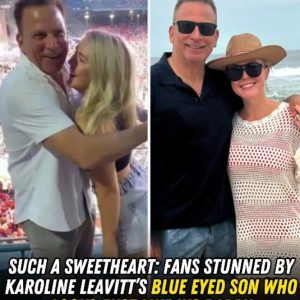I moved into the apartment three weeks after my husband died. Not because I wanted to, but because I had no other choice. Medical bills, funeral costs, everything we’d saved—it vanished overnight. This place was the only thing within reach. The rent was suspiciously low, and it didn’t take long to see why.
That afternoon, I stepped onto the cracked sidewalk with a grocery bag in each hand. A man approached from across the street—tall, broad, tank top clinging to muscles that could’ve belonged to a linebacker. Shoes the size of microwaves. Spiral tattoos winding down both arms.
My stomach dropped. I gripped my purse tighter, tried to keep my face neutral. But he must’ve seen the fear.
“Are you okay, ma’am?” His voice was deep but soft, like velvet poured over gravel.
I froze. Then, maybe out of grief, maybe out of exhaustion, I said the truth.
“I don’t feel safe here.”
He looked around, then back at me with something almost like guilt in his eyes. “Yeah. I get that. A lot of people don’t. That’s why I stay out here. Try to keep folks like you from walking alone.”
Before I could respond, he gently took one of my bags. “Come on,” he said. “We’ll walk together.”
We didn’t speak much. Just walked side by side until we reached my porch. I turned to him. “Why do you do this?”
He smiled a little. “Because someone once did it for my mom. Changed everything—for her and for me.”
He didn’t wait for me to respond. Just nodded and walked off down the street. That night, for the first time since moving in, I opened my blinds instead of closing them tight.
The next morning, a paper bag sat on my front step. A note was taped to it: Fresh from Miss Anita’s—start with the peach scone. Inside were three warm pastries.
No signature. But somehow, I knew.
In the days that followed, I saw him again and again. Helping an elderly man lift his groceries. Talking to a group of kids who clearly looked up to him. Breaking up a shouting match outside the liquor store before it could escalate.
I asked about him at the corner store. The owner smiled as she rang me up. “That’s Marcus,” she said. “Lives two blocks over with his sister. Good man. Been through hell.”
“What kind of hell?” I asked, careful not to sound like I was prying.
She lowered her voice. “Lost his dad when he was little. Mom raised him and his sister. Got in with a bad crowd, but turned it around. Now he’s back in school, works at the rec center, keeps half this street from falling apart.”
That evening, I baked banana bread—the only thing I hadn’t ruined lately—and brought it to the rec center.
He was on the front steps, talking to two teenage boys. When he saw me, he stood.
“I figured you left the pastries,” I said, holding out the foil-wrapped loaf.
He chuckled. “Guilty.”
“It’s not much,” I said. “Just… thank you.”
He took the bread, nodded. “It means something. Thanks for not assuming the worst.”
That was the beginning. We started talking more. I was surprised to learn he was only twenty-eight—he carried himself like someone older. His sister, Leila, was seventeen and about to graduate. He worked by day, studied by night.
One afternoon, he knocked on my door with a small toolbox. “Saw your porch light flicker. Figured I’d fix it before it dies.”
I didn’t argue. Made him tea while he worked. After that, he checked in every few days, and I always made something warm.
One night, just past midnight, I woke to shouting. A woman was screaming across the street. I peeked through the blinds—two figures in the street, one with a bottle clenched tight.
I called Marcus.
He answered immediately.
“There’s a fight outside,” I whispered. “She sounds scared.”
“Stay inside,” he said. “I’m coming.”
Minutes later, I watched him step between them, calm and sure. The man backed off. The woman cried.
The next morning, she sat on Marcus’s balcony, sipping coffee with Leila. I realized then—he wasn’t just helping. He was rebuilding something.
Then, silence.
A day passed. Then two.
On the third, Leila came to my door, red-eyed and shaking.
“He’s in the hospital,” she said. “Jumped on his way home from class. They took his wallet and phone. He fought back… they beat him bad.”
I felt the air leave my body.
The next day, I brought flowers and banana bread to his hospital room. He smiled, his face swollen and arm in a sling.
“Turns out,” he croaked, “I’m not bulletproof.”
“You don’t have to fix everything, Marcus,” I told him. “Let someone else help.”
He looked at me. “Yeah… but who else will?”
And I realized—I could.
So I started walking the older neighbors to the store. Picked up trash at the playground. Organized a food drive for a family who’d just lost their income.
I wasn’t Marcus. But I could still matter.
People noticed.
Teenagers lowered their music when they saw me. Tre started walking Miss Clara’s dog every night. When word spread that Marcus was recovering, the quiet woman across the street brought soup to his sister.
We were far from perfect.
But we were trying.
Two months later, Marcus returned to the rec center. A little slower, still bruised—but smiling.
“You’ve turned this place around,” he said.
“No,” I replied. “You did. I just kept the wheels spinning.”
That summer, we had a block party. Food, music, laughter—even the landlord showed up, offered to paint over graffiti and replace the streetlights.
That night, Marcus and I sat on my porch. He had a popsicle. I had iced tea.
“You know,” I said, “when I moved here, I was terrified.”
He nodded. “I remember.”
“But now… I feel like I belong.”
He looked out at the street. “That’s what it’s all about.”
After a pause, he added, “My mom passed five years ago. Before she died, she told me: We’re not here just to survive. We’re here to leave it better than we found it.”
I blinked quickly, holding back tears. “She’d be proud of you.”
He smiled down at his melting popsicle. “We’d make her proud.”
Time passed. Leila went off to college. Tre applied to be a firefighter. A fruit stand opened up near the corner store.
And then came a call from the landlord’s office.
“We’re lowering your rent by $100,” she said.
“Wait, what? Why?”
“Fewer complaints, more lease renewals. Just… keep doing whatever you’re doing.”
I laughed. “You got it.”
As I stepped outside, Marcus jogged by, still healing, still smiling.
“Hey!” I called. “You free Saturday?”
He slowed. “Why?”
“I was thinking… small garden workshop. The kids want to plant sunflowers.”
He grinned. “I’ll bring the shovels.”
Looking back, I never imagined this street—the one that felt so broken—would become my home.
But maybe that’s the thing.
Sometimes, the places we fear the most just need someone to stay long enough to make them better.
If you’re searching for a better place, maybe you don’t need to leave.
Maybe you just need to become the reason it changes.
If this story moved you, share it. Someone out there might need the reminder: hope lives here—and maybe, just maybe, it lives next door.





